Bain opens up on Virgin bid plans
Bain Capital would retain Paul Scurrah as CEO, invest in consumer experience technology, and continue to service the corporate market.
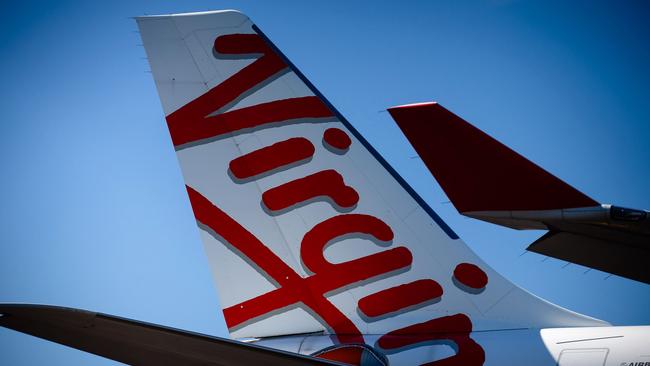
Bain Capital has committed to retaining Paul Scurrah as the chief executive of Virgin Australia, will make a major investment in the technology backbone of the airline to upgrade the experience of customers and continue to service parts of the corporate market if it wins control of the collapsed carrier.
After being rejected by two key unions on Wednesday in the Virgin Australia administration process, Bain Capital Australia managing director Mike Murphy also insisted in a wide-ranging interview with The Australian on Thursday that Bain would not be put off by the public show of support for its rival.
Bain is vying with Cyrus Capital to bring the airline out of administration and become a profitable carrier on domestic and international routes.
Part of the process is negotiating with unions representing the airline’s 9000 employees, and on Wednesday the licensed aircraft engineers and flight attendants associations declared Cyrus to be the “best fit” for Virgin Australia.
Other unions including the Transport Workers Union and Australian Federation of Air Pilots have stopped short of choosing sides in the bidding contest, until details of their final offers are known.
Despite the setback, Mr Murphy said he believed Bain was making good progress in its union negotiations.
“We’ve been working really hard and constructively with the broader group including critically, the Transport Workers Union (TWU) and the ACTU,” Mr Murphy said.
“It’s a very tight time frame to get this investment done and relationships take time but we feel like we’re developing constructive relationships.”
He said Bain recognised it had more work to do with the licensed engineers and flight attendants but they were “not put off”.
“We want to do a better job of explaining how we can work hand in glove to achieve the same outcome,” said Mr Murphy.
“Unions are concerned about the same thing as us.”
Bain advisers Jayne Hrdlicka and KordaMentha partner Mark Mentha were unexpectedly excluded from attending a Zoom meeting with the ACTU on Tuesday at the request of TWU secretary Michael Kaine.
Ms Hrdlicka and Mr Mentha attended previous meetings with the ACTU and the AFAP.
Asked if Ms Hrdlicka was excluded from the meeting because of union concerns about her involvement with the Bain bid given her history as the chief executive of the Qantas-owned low cost carrier Jetstar, Mr Murphy replied: “No. The unions first and foremost wanted to hear from me and the direct Bain Capital. We could have brought Jayne or anyone along to that next meeting. It was important to me it was more of a one-to-one experience.”
“At this point of the process, we are at a point now where it is much more valuable to have principal to principal discussions. Me being able to have direct conversations with the unions and others and them to give me very frank perspectives on a whole range of issues and for them to speak freely about anything is important,’’ he said.
Mr Murphy conceded it was a challenge to maximise employment opportunities in the current COVID environment, with airlines globally facing huge losses. But he would not be drawn on what size the airline’s workforce would be post-administration.
“Maximising employment through this process is absolutely our goal,’’ he said.
Neither bidder has stated how many of the 9000 employees they would retain but Virgin management’s “2.0 plan before the onset of the COVID-19 pandemic outlined a plan to cut 3000 staff.
He confirmed Bain would make a significant upfront capital injection into the Virgin business to get it off the ground, but declined to put a value on the invesmtent. It is expected to be more than $1 billion, leaving the carrier able to withstand shocks such as a second wave of COVID-19 and geopolitical instability.
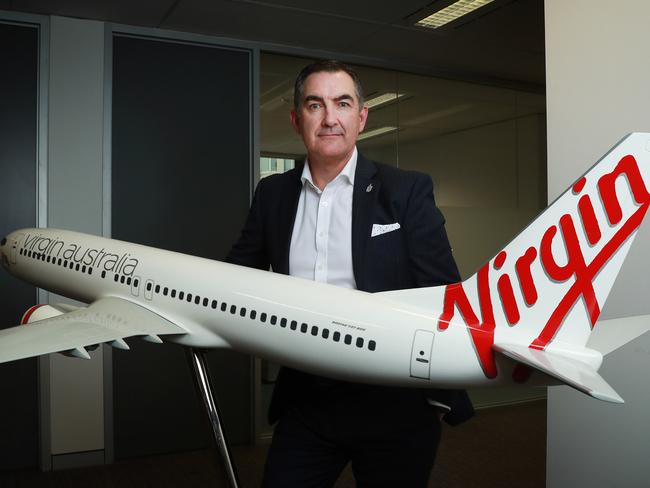
There has been ongoing speculation as to whether Ms Hrdlicka would be the new CEO of a Bain-owned Virgin.
Asked if Bain would retain Mr Scurrah as chief executive, Mr Murphy was unequivocal.
“Yes,’’ he replied.
“We are very excited to be backing Paul and his team and their plan.”
Asked about the future role of Ms Hrdlicka with the airline, he replied: “We have got a lot out of working with Jayne in our analysis and due diligence on this business. She comes at this with a very strategic lens and that’s been invaluable. We would love Jayne to be on the board of this business if we get through.”
He declined to say if she would be considered for the chairman role.
“The honest answer is we haven’t actually decided that,’’ he said, noting a chairman would require good government relations skills. “(But) it is too early to say exactly what we may finally need in the chairman,’’ he added.
Cyrus has embraced the vision proposed by existing management of Virgin Australia and vowed to keep the executive team in place, led by Mr Scurrah.
That would see Virgin Australia return to service not dissimilar to its pre-administration model, with a strong domestic network and medium haul international services.
There has been speculation that both Bain and Cyrus are likely to relaunch the airline with about 40 Boeing 737 planes in the air, with scope to expand closer to 70 as travel demand returns to normal after the COVID pandemic.
Mr Murphy declined to be specific on fleet numbers except to say: “Clearly 144 aircraft (the size of the current Virgin fleet) is too many coming out of the gate.”
“A fleet simplification program is a no-brainer, and the management idea of getting nine different aircraft types down to something focused around 737s, is what we’re working on,” said Mr Murphy.
He said the fleet that initially took to the skies post administration had to “go back to what sort of demand is being rebuilt and what forward bookings we are seeing as bookings open up,’’ he said, before stressing Bain wanted to maintain a “buffer” of aircraft “above levels of customer demand in first six months”.
“We want the capacity ready to turn back on,’’ he said.
“What we need here is a flexible fleet that we can stand up and get back into the skies as customer demand rebuilds.”
The future of Virgin Australia’s order for 48 new Boeing 737 Max looked doubtful under a Bain deal, with Mr Murphy suggesting what they needed was a “flexible fleet”.
“It’s not in anyone’s interests to be carrying double the size of the fleet than is required because you’re just back with the same problem of too much cost and too much complexity so the opportunity has to be taken to match the fleet size to customer demand,” he said.
He reiterated a Bain-owned Virgin would be a hybrid carrier, not a low-cost airline.
“We absolutely agree that the positioning of Virgin is and should continue to remain on customer value. We are not looking to take Qantas head on, especially in their corporate part of the market
We are not looking to drop down and take Jetstar head on,’’ he said.
He said a new Virgin would compete in four market segments: corporates, SMEs, leisure and what he termed “VFR’s” – visiting family and relatives.
“We will be in all of those parts of the consumer segments. There is a proposition in each of those four segments,’’ he said, noting there was “no near-term intention to change” the current business class offering of the airline.
“As this point things will be as they are and following Virgin’s management’s 2.0 plan coming out of administration,’’ he said before adding: “We don’t want to rule out anything” for the future.
However he did stress: “We are not looking to attack the very high end of corporate Australia.”
“We think there will always be different segments that will want the much more high spend Qantas experience and we understand that,” Mr Murphy said.
Asked about the fate of “The Club”, Virgin’s competitor to Qantas’s highly sought after Chairman’s Lounge for CEO’s, politicians and celebrities, Mr Murphy replied: “In our research, access to that club is important to a small elite segment of our customers and not the mainstream.
Whether or not we retain that is under evaluation.”
Bain has conducted 6000 interviews with Virgin customers over the past two months, from which it has concluded their two most important priorities for the relaunched carrier are price and the availability and scheduling of flights. The research has found the travelling public likes the brand because it represents great value.
“We have to be led here by customer demand,’’ Mr Murphy said.
“The intention here is to rebuild a broad domestic network, continue with the international business and ensure regional remains strong.”
“The broad brush commitment to regional is important. Whether on some routes Virgin flies with its own metal or in partnership with another carrier such as Alliance, those details are to be worked out.”
He confirmed Bain was keen to invest behind beefing up the technology in this business, including its mobile app and online booking capabilities.
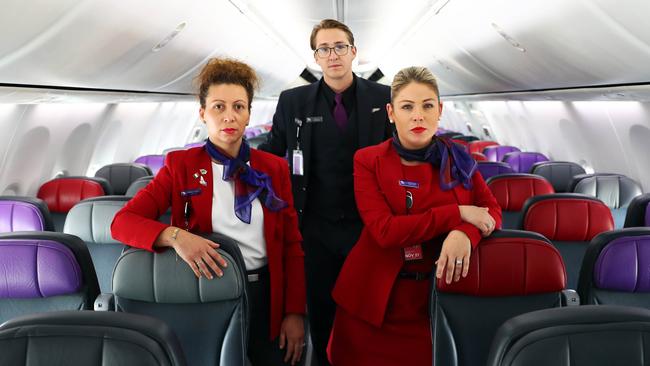
“There are real gaps here from the customer experience perspective. The app and online bookings pop out of that work.”
He also said there was much more the airline could do “mining its data” resource.
“These kind of businesses are incredibly data rich. I am not sure the business has had the capital support in the past to invest in that asset.”
This could also bolster the Velocity business in the way Qantas has used data analytics businesses such as Red Planet to bolster its powerhouse Frequent Flyer division.
Bain is negotiating to bring the Velocity brand closer to the airline to create bigger commercial experiences and drive greater commercial opportunity in ongoing talks with Virgin Group, which currently receives about $15m a year in royalty payments from the Australian carrier.
Bain is considering plans to have one common app and website for both the Virgin and Velocity brands.
A group of 6000 unsecured bond and note holders owed about $2bn collectively by the distressed airline is one of the largest creditor factions by size and value.
Mr Murphy declined to speculate on commentary that Bain may leave the bond holders with as little as 10c in the dollar.
“That level of detail goes to the heart of the price we are contemplating,’’ he said, before adding: “We fully understand the bondholders are really important constituents in this. There has been speculation that the bond holders get nothing out of this. That is not our view at all. But what position we finish with is still to be determined.”
Steven Wright from Morgans, which represents a group of retail bond holders, reiterated on Thursday that they were not prepared to be bought off with a low-ball offer like 10 cents in the dollar.”
“With domestic aviation rebounding as COVID-19 restrictions are lifted there is huge upside in Virgin that must be recognised by the bidders,” he said.
“The bidders should be looking at a figure much much higher if they even want to start a conversation with the retail bond holders."
Mr Murphy is one of the 15 partners who manage Bain Capital’s suite of Asia Private Equity Funds, which have collectively raised $US11.5bn ($16.7bn).
He said the funds for the Virgin bid were “committed, they are internal, they don’t need approvals and we are ready to go,” and would come from a $25bn pool of capital globally.
“It will come from a combination of our Asia Fund 4 that closed just last year (worth $6.5bn) our US debt fund (worth over $10bn) and our distressed and special situation funds. There are several different funds within that, in Asia and Globally,’’ he said.
Bain and Cyrus are due to lodge binding bids with administrator Deloitte on Monday, June 22, ahead of a final decision on the winning bid, by June 30.
Virgin Australia went into voluntary administration on April 21 owing $6.8bn to more than 12,000 creditors.

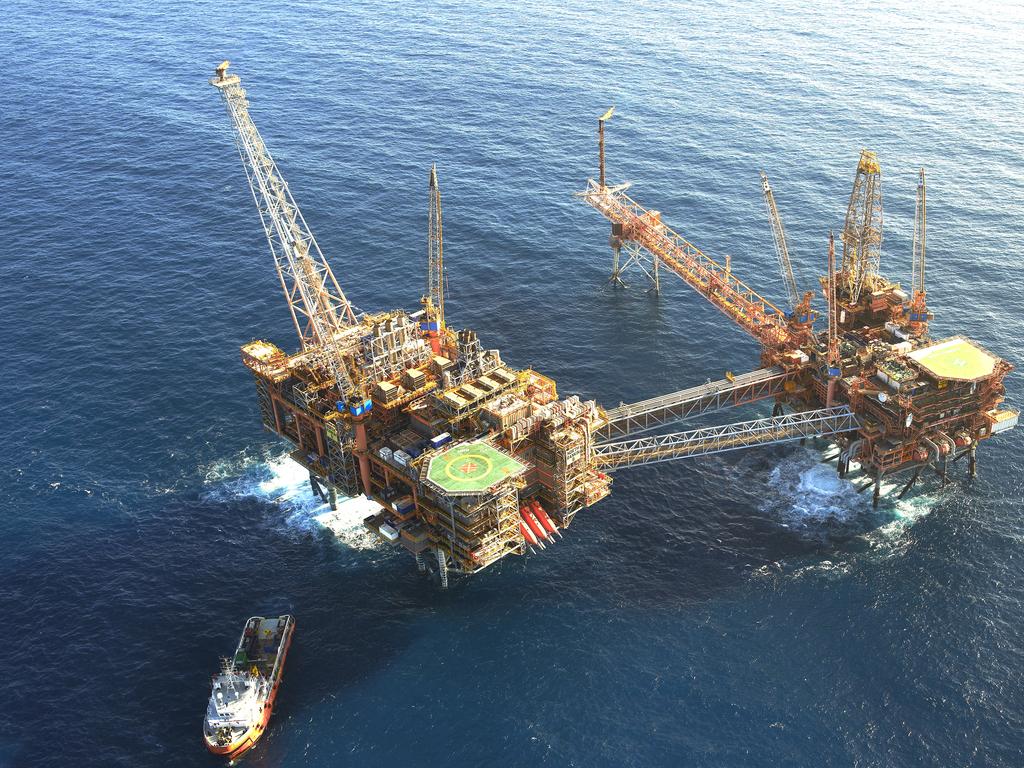
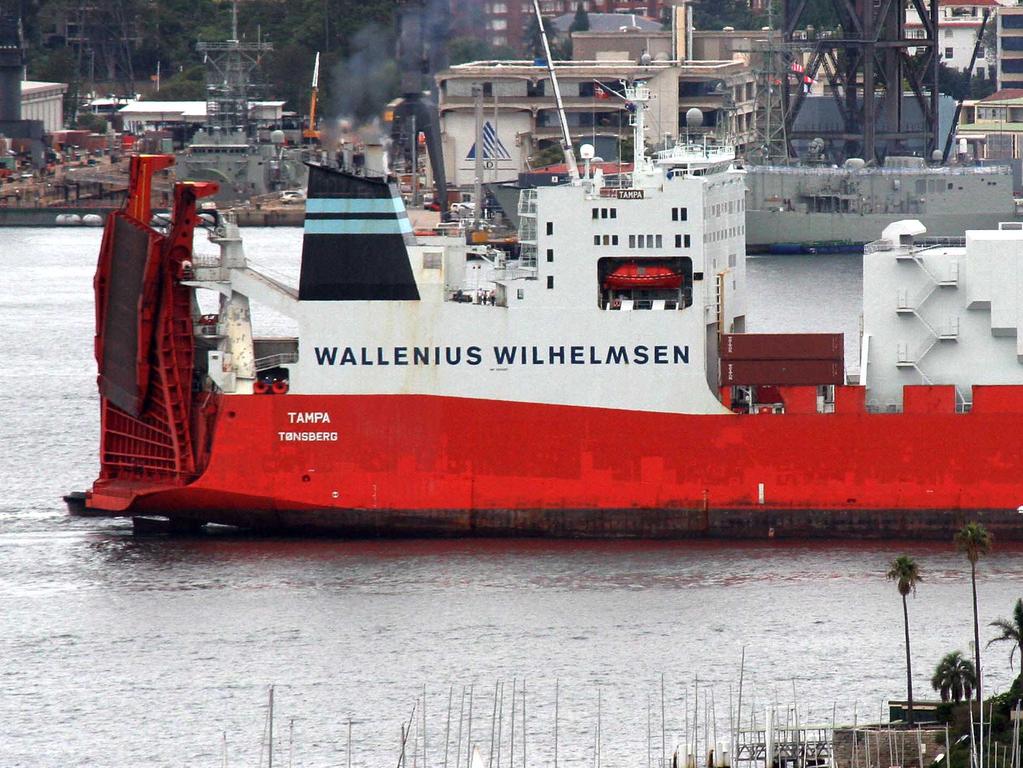



To join the conversation, please log in. Don't have an account? Register
Join the conversation, you are commenting as Logout